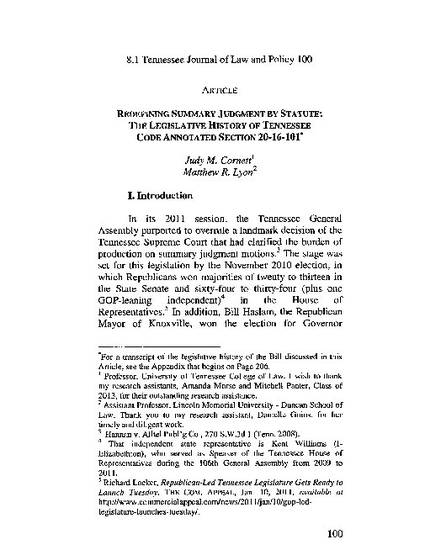
In its 2011 session, the Tennessee General Assembly purported to overrule a landmark decision of the Tennessee Supreme Court that had clarified the burden of production on summary judgment motions. The stage was set for this legislation by the November 2010 election, in which Republicans won majorities of twenty to thirteen in the State Senate and sixty-four to thirty-four (plus one GOP-leaning independent) in the House of Representatives. In addition, Bill Haslam, the Republican Mayor of Knoxville, won the election for Governor handily, leaving Republicans "large and in charge" and in control of the executive branch and both houses of the legislature in Tennessee for the first time since 1869. Republicans took control of power in Nashville vowing that they would govern responsibly, despite hard feelings resulting from years of Democratic control, not to mention the surprise, last-minute denial of the Speaker of the House position to the Republican leader in the 106th General Assembly. The Republican leadership stated at the outset that its top priority at the beginning of the legislative session was "job creation," and this goal translated into the passage of a slew of legislative proposals friendly to the business community, many of which had stalled under the previous Democratic regime." The most notable of these was a "tort reform" package that limited non-economic damages to $750,000, and capped punitive damages at two times the amount of compensatory damages awarded or $500,000, whichever is greater. While this initiative and others, such as the abolition of collective bargaining for teachers, received greater public attention, the new legislative majority also set its sights on overruling certain Tennessee Supreme Court decisions that the business community had interpreted as unfriendly to its interests.
Available at: http://works.bepress.com/judy-cornett/4/
